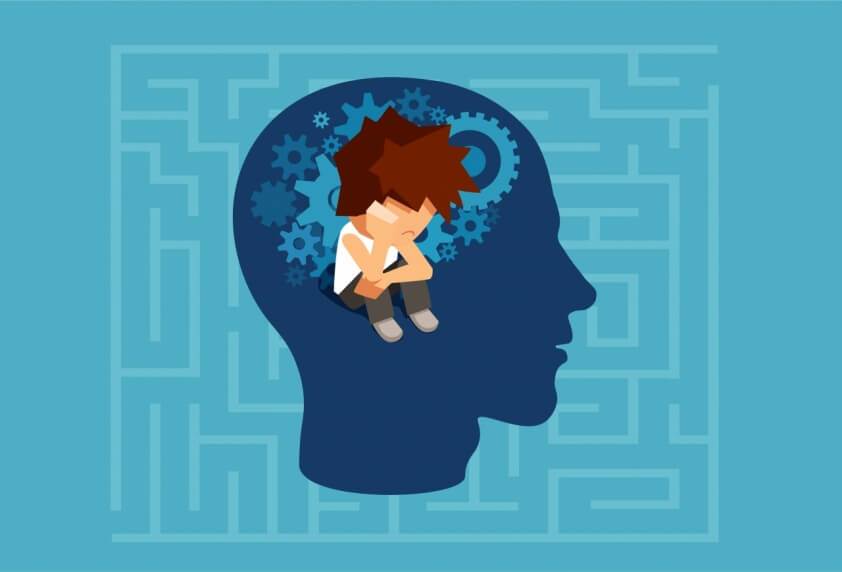Type 1 diabetes is a well-known autoimmune disorder, but could trauma really be a trigger for this life-changing condition?
It sounds almost implausible—how could something like an emotional shock or physical injury impact your pancreas?
However, emerging research suggests that trauma may play a role in triggering or accelerating the onset of type 1 diabetes in certain individuals.
In this article, I will walk you through how trauma might cause type 1 diabetes, exploring both scientific findings and real-life examples to uncover the potential links between stress, trauma, and the immune system.
“How Trauma Causes Type 1 Diabetes” Article Index:
- What is Type 1 Diabetes?
- Understanding the Role of the Immune System in Type 1 Diabetes
- Can Trauma Really Trigger Type 1 Diabetes?
- The Connection Between Emotional Trauma and Type 1 Diabetes
- Physical Trauma and Its Impact on Type 1 Diabetes
- Scientific Evidence on Trauma and Type 1 Diabetes
- Everyday Examples of Trauma and Type 1 Diabetes
- Conclusion: Can Trauma Truly Cause Type 1 Diabetes?
What is Type 1 Diabetes?
Before diving into the role of trauma in type 1 diabetes, it’s essential to understand what type 1 diabetes is.
Type 1 diabetes is an autoimmune disease in which the body’s immune system mistakenly attacks insulin-producing beta cells in the pancreas.
These beta cells play a crucial role in regulating blood sugar levels, and without insulin, glucose cannot be properly absorbed by cells, leading to high blood sugar levels.
Unlike type 2 diabetes, which is often linked to lifestyle factors like diet and exercise, type 1 diabetes is not preventable.
It typically develops in children and young adults, though it can also occur later in life.
Understanding the Role of the Immune System in Type 1 Diabetes
The key player in type 1 diabetes is the immune system, which is meant to protect the body from harmful invaders, such as viruses and bacteria.
However, in individuals with type 1 diabetes, the immune system becomes confused and attacks the body’s own insulin-producing beta cells in the pancreas.
This process is known as an autoimmune reaction.
While the exact cause of this misfire remains unclear, it is believed that a combination of genetic predisposition and environmental factors is involved.
But where does trauma fit into this picture?
Can Trauma Really Trigger Type 1 Diabetes?
The idea that trauma could play a role in triggering Type 1 diabetes may seem unexpected—but it is a question researchers are beginning to explore more seriously.
Type 1 diabetes is an autoimmune disease, where the body’s immune system mistakenly attacks insulin-producing beta cells in the pancreas. While genetics and viral triggers are well-known contributors, trauma—whether physical, psychological, or emotional—has been proposed as a potential accelerator in people with underlying risk.
Some studies suggest that children who go through severe trauma, such as the sudden loss of a loved one or a serious accident, may be more likely to develop Type 1 diabetes later. The body’s stress response system, particularly the release of cortisol, may interfere with immune regulation. In individuals with a genetic predisposition, this disruption might tip the immune system into overdrive, initiating or accelerating the autoimmune attack on pancreatic cells. This further causes neonatal diabetes.
A large Swedish study found a notable increase in diabetes diagnoses among children exposed to acute life events. However, not all research agrees—some population studies show little to no direct link between general stress and diabetes risk. It seems that both the intensity and timing of the trauma are key factors.
In addition to possibly influencing disease onset, trauma can affect diabetes management. People with Type 1 diabetes are more likely to experience conditions like anxiety, depression, and post-traumatic stress disorder. These mental health struggles can make it harder to maintain consistent blood sugar control and follow treatment routines.
While trauma alone may not cause Type 1 diabetes, it could act as a powerful trigger in vulnerable individuals. This is a growing field of research, and understanding the connection between stress, the immune system, and diabetes could lead to better support for those at risk.

The Connection Between Emotional Trauma and Type 1 Diabetes
Let me start with emotional trauma, something that is unfortunately all too common in life.
Stressful events like the loss of a loved one, a major life change, or prolonged periods of anxiety and depression can deeply impact the body.
In fact, a study published in Diabetologia suggested that psychosocial stress might be a contributing factor to the development of type 1 diabetes in genetically susceptible individuals.
The idea here is that chronic stress can weaken the immune system, making it more vulnerable to autoimmune responses.
From personal experience, I can relate to how emotional trauma can take a toll.
Years ago, after dealing with the sudden passing of a close family member, I found myself experiencing unexplained physical symptoms, which included fatigue, frequent thirst, and unexplained weight loss.
While I did not know it at the time, these are classic symptoms of diabetes, and my doctor later confirmed that I had developed type 1 diabetes.
While it is difficult to say whether the trauma directly caused the condition, it was undoubtedly a catalyst.
Physical Trauma and Its Impact on Type 1 Diabetes
The role of physical trauma is also worth exploring.
When I say trauma, I am not just talking about accidents or injuries. Trauma can include things like surgery, major illnesses, or infections—anything that creates a significant strain on the body.
A study published in the Journal of Clinical Endocrinology and Metabolism discussed the potential for physical trauma, such as head injuries or significant illness, to accelerate the onset of type 1 diabetes in genetically predisposed individuals.
This study noted that physical trauma could lead to an inflammatory response, which might activate or exacerbate the autoimmune process.
For example, if someone had been in a severe car accident and had a family history of type 1 diabetes, it is possible that the stress and inflammation caused by the trauma could trigger the immune system to start attacking the pancreatic beta cells.
It is not that the accident “caused” diabetes in the traditional sense, but rather it acted as a trigger.
Scientific Evidence on Trauma and Type 1 Diabetes
Let us take a look at some of the scientific evidence that supports the connection between trauma and type 1 diabetes.
One important study was published in Pediatric Diabetes, which found that children who experienced significant life stressors, such as parental divorce or the death of a loved one, had a higher likelihood of developing type 1 diabetes.
Another study in Psychoneuroendocrinology examined the role of chronic stress on autoimmune diseases and found that high-stress levels could lead to immune dysregulation, potentially increasing the risk of autoimmune diseases, including type 1 diabetes.
This aligns with the concept of trauma-induced type 1 diabetes, where chronic emotional or physical stress can play a role in disease onset.
Everyday Examples of Trauma and Type 1 Diabetes
To make this more relatable, let us consider some everyday examples where trauma might intersect with type 1 diabetes.
Example #1:
Imagine a teenager who has just gone through a difficult breakup and is dealing with the stress of academic pressures. They are constantly on edge, not sleeping well, and feeling emotionally drained.
Over time, their immune system is weakened, and if they are genetically predisposed to type 1 diabetes, this emotional trauma could be the final push that triggers the disease.
Example #2:
Or take someone who has just undergone major surgery—perhaps a procedure like an appendectomy.
The physical stress of surgery, combined with the recovery process, puts their body under significant strain.
If they have an autoimmune predisposition, this could accelerate the immune system’s attack on the pancreas, leading to the onset of diabetes.
In both examples, trauma plays a role not in causing type 1 diabetes directly but in acting as a trigger that sets the autoimmune process into motion.

My Opinion: Can Trauma Truly Cause Type 1 Diabetes?
So, can trauma really cause type 1 diabetes?
While trauma itself may not be the sole cause, there is mounting evidence that both emotional and physical trauma can act as triggers for the onset of type 1 diabetes in genetically predisposed individuals.
Trauma—whether in the form of chronic stress, emotional upheaval, or physical injury—can weaken the immune system and potentially prompt the body to attack its own insulin-producing cells.
In summary, while trauma does not cause type 1 diabetes in every case, it can accelerate its development or act as a tipping point in those already at risk.
If you or someone you know has experienced significant trauma and is showing symptoms of type 1 diabetes, such as frequent thirst, unexplained weight loss, or fatigue, it is crucial to consult a healthcare provider.
Early detection and treatment (via natural remedies for diabetes) are key to managing the condition and living a healthy life.
References:


